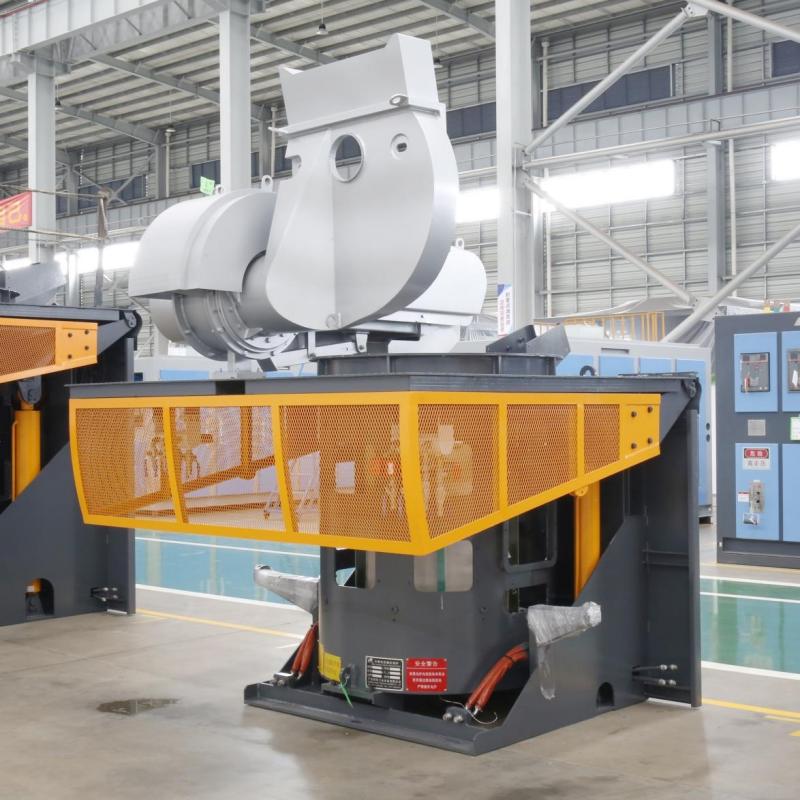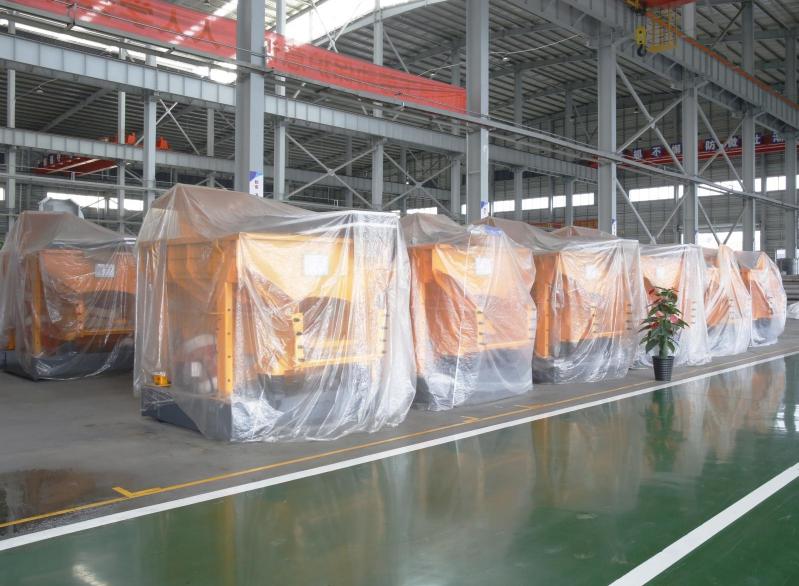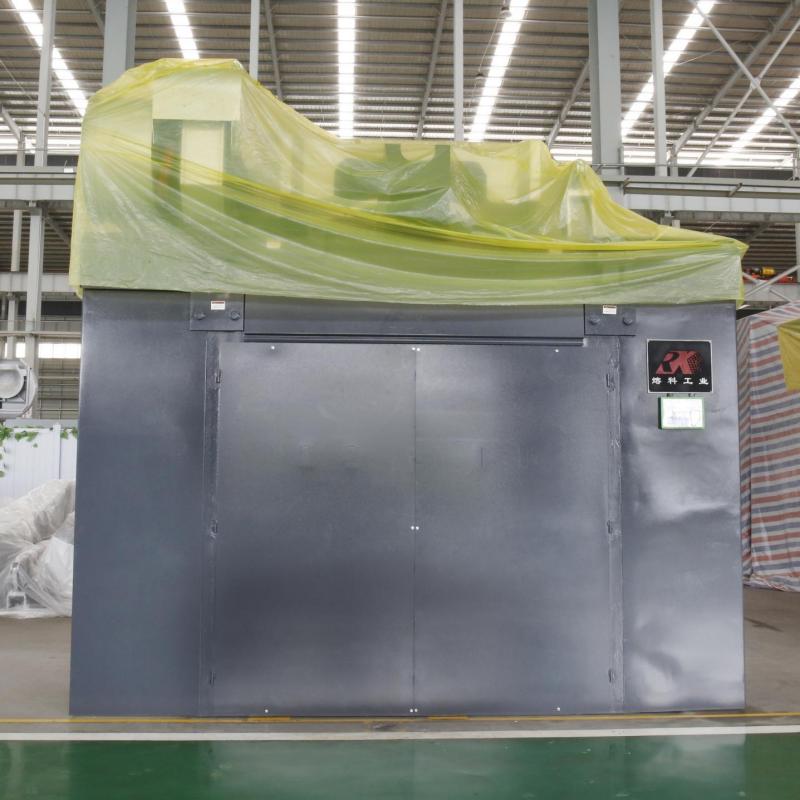
The Power of Intermediate Frequency Coreless Induction Furnaces for Steel Melting
Steel is a fundamental material in manufacturing, crucial for industries worldwide. The steel melting process is at the heart of steel production, where raw materials are transformed into molten steel for further shaping. Efficient steel melting is vital, as it directly impacts the quality, cost, and environmental footprint of the final product. Rongke, committed to excellence, upholds stringent production requirements and inspection standards. From design concept to production, every detail is meticulously handled to ensure first-class quality, reflecting our dedication to customer satisfaction.
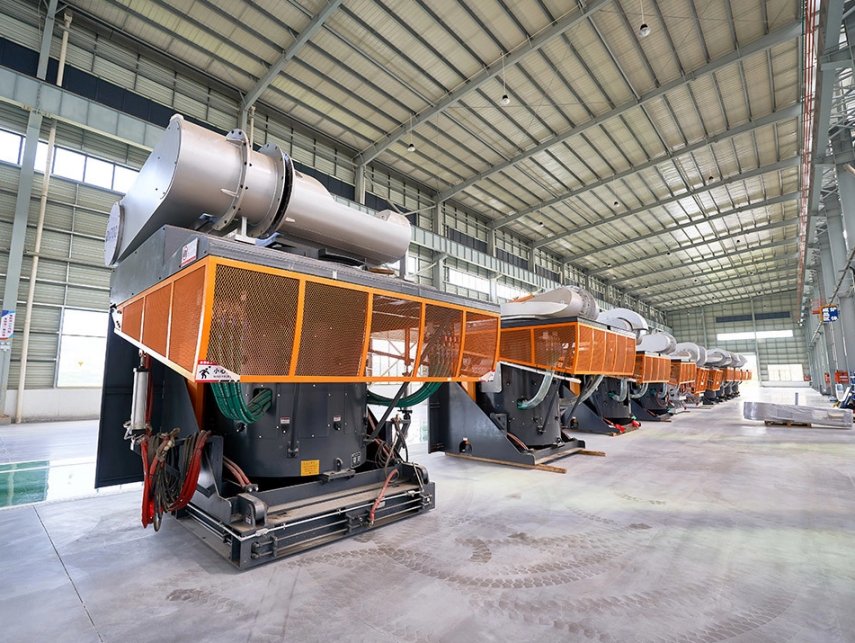
Traditional Furnace Limitations
Description of Traditional Induction Furnaces
Traditional induction furnaces are commonly employed for steel melting, functioning by utilizing electromagnetic induction to generate heat within the metal. They are structured with a crucible enveloped by a coil carrying an alternating current. As the current flows through the coil, it generates a magnetic field inducing electrical currents, or eddy currents, within the metal. These currents produce heat due to resistance, ultimately melting the metal.
Drawbacks of Traditional Furnaces in Steel Melting
Despite their prevalent use, traditional induction furnaces exhibit several limitations. Primarily, they are not highly energy-efficient. A notable amount of energy is dissipated in the form of heat radiation, resulting in a relatively low overall efficiency. Additionally, these furnaces face challenges in temperature control and uniformity. Maintaining precise temperatures throughout the melting process can be difficult, leading to inconsistencies in the final product. Furthermore, traditional furnaces are often constrained in their capacity and scalability, making them less suitable for large-scale industrial operations.
Intermediate Frequency Coreless Induction Furnaces (IFCIF)
Explanation of IFCIF Technology
The Intermediate Frequency Coreless Induction Furnace (IFCIF) represents a significant advancement in melting technology. These furnaces are designed with a focus on enhancing user experience and ensuring optimal performance. Featuring a more interactive interface and improved details, IFCIFs incorporate cutting-edge materials, processing techniques, and craftsmanship. These elements combine to elevate safety, stability, and energy efficiency in production, positioning IFCIFs at the forefront of the industry.
Advantages over Traditional Furnaces
- Reduced Noise: IFCIFs are engineered to operate with noise levels approximately 30% lower than comparable products, contributing to a more comfortable working environment.
nEnhanced Safety Features: The furnace shell of IFCIFs is fully enclosed, effectively preventing coil ignition caused by dust pollution, ensuring a safer operational environment.
- Lower Magnetic Radiation: The closed furnace shell acts as a secondary shield for the coil’s magnetic field, significantly reducing the amount of magnetic radiation emitted by the equipment. This reduction brings the magnetic radiation output to only 10% of similar products, well below national standards and enhancing workplace safety.
Applications of IFCIF in Steel Industry
Steel Foundries
IFCIFs are widely employed in steel foundries for the precise melting and refining of metal alloys. Their advanced technology enables meticulous control over the melting process, ensuring the production of high-quality castings.
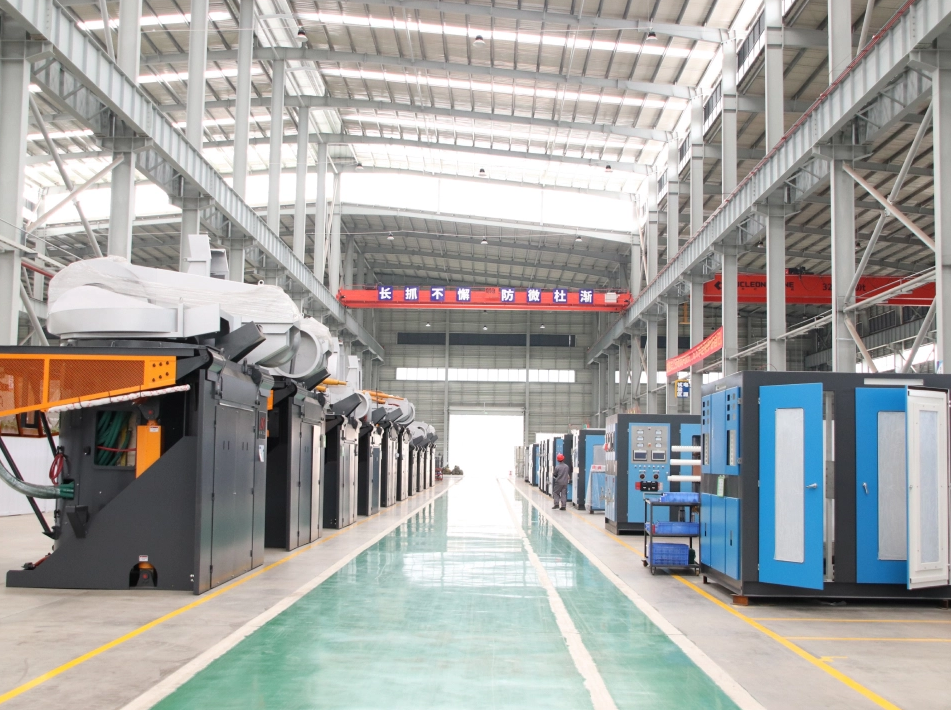
Automotive Manufacturing
In the automotive sector, IFCIFs are pivotal in crafting diverse steel components such as engine parts, chassis components, and body panels. Their efficient melting and shaping capabilities are indispensable in automotive manufacturing.
Construction Industry
The construction field utilizes IFCIFs to melt and shape steel for crucial structural components like beams, columns, and reinforcement bars. The high efficiency and reliability of IFCIFs make them a perfect fit for the construction sector’s demands.
Other Steel-Intensive Industries
IFCIFs are also indispensable in various steel-intensive industries including shipbuilding, aerospace, and machinery manufacturing. Their adaptability and efficiency make them the preferred choice for industries reliant on steel production.
IFCIFs stand as a critical technology in the steel industry, facilitating efficient and dependable production processes across diverse sectors.
Case Studies
Example of a Steel Foundry Adopting IFCIF
In 2019, Foshan Huifu Science and Technology Co., Ltd. purchased a 10-ton series one-to-two electric furnace melting system from Rongke. Rongke provided comprehensive services, including design, production, installation, commissioning, personnel training, and follow-up visits. By tailoring the engineering plan to meet the customer’s quality requirements and factory design, Rongke earned high praise and continues to maintain strong business relationships in the region. Rongke has also achieved significant recognition in the industry, obtaining EU CE safety certification, ISO quality management system certification, and various awards for quality, service, and innovation.
Impact on Production Efficiency and Cost Savings
Rongke’s commitment to quality and innovation has led to improved production efficiency and cost savings for its customers. Our products have been highly praised and recognized by a wide range of customers, contributing to our reputation as a leading provider of advanced furnace melting systems.
Future Trends and Innovations
Advancements in IFCIF Technology
- Rongke IDE Full-time and All-round Furnace Leakage Alarm System: This system detects leakage by monitoring molten iron seeping from the furnace lining. It triggers an alarm when the leakage current reaches the detection electrode or penetrates the coil, indicating the specific location of the leak.
- Leading Energy Efficiency: Rongke utilizes TU1 grade oxygen-free copper and the thickest wall copper tube in the industry, along with double coil technology, to create more energy-efficient products.
- Magnet Yoke Technology: Made from high-quality cold-rolled directional silicon steel sheets, the magnet yoke supports the induction coil and gathers the induced magnetic field to the molten bath. It also features balanced heat dissipation and is maintenance-free, contributing to low magnetic loss and long working life.
Potential Improvements in Energy Efficiency and Performance
- Strong Supporting System: Ensures stability and reliability in operations.
- Tilting Furnace Drive System: Facilitates easy tilting for efficient operation.
- Cooling System: Utilizes enclosed distilled water cooling, with all waterways equipped with temperature and pressure monitoring for enhanced safety and performance.
- 360 Type Dust Hood: Provides comprehensive dust collection and management.
- Hydraulic System: Features one-use and one-standby hydraulic oil pumps, explosion-proof valves on all oil cylinders, and fire-proof sleeves on exposed oil pipes, ensuring safe and efficient operation.
- Double Hydraulic Rods: Drive system ensures stable and smooth operation in all directions, with strong suction capabilities.
These advancements and improvements in IFCIF technology promise greater energy efficiency, performance, and reliability in steel melting processes, paving the way for more sustainable and cost-effective operations in the future.
CONCLUSION
Intermediate Frequency Coreless Induction Furnaces (IFCIF) have revolutionized steel melting processes, offering enhanced efficiency, precision, and cost-effectiveness. Through advanced technologies such as Rongke IDE furnace leakage alarm system and magnetic yoke technology. IFCIF ensures safer operation and improves energy efficiency. Case studies such as Foshan Huifu Technology Co., Ltd. show the real impact of adopting IFCIF. The result is improved production efficiency and cost savings. As the industry continues to innovate. IFCIF stands out as a powerful tool for steel foundries and other steel-intensive industries, providing unparalleled performance and reliability.


